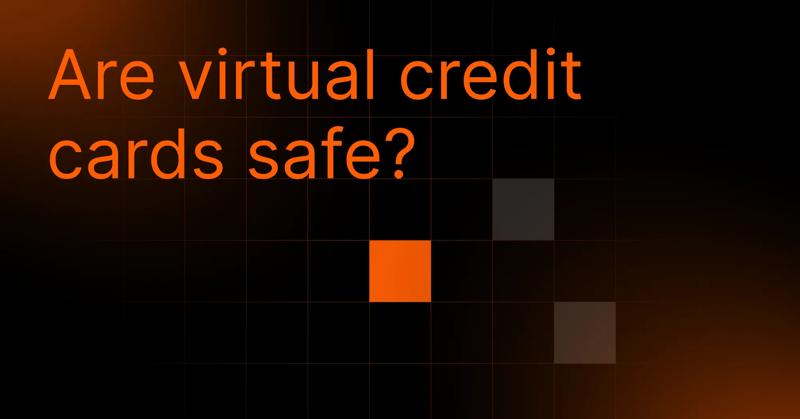9 consequences of identity theft: Lasting financial, legal, reputational, and emotional impact
We all know it’s important to protect our personal information, but what actually happens when someone gets hold of it? If you want to stay prepared, you have to understand the different consequences of identity theft — from lasting financial and legal trouble to effects on your mental well-being. Let’s look at what really happens when someone steals your identity so you can actively protect it.

Why identity theft can seriously impact your life
Simply put, identity theft is when someone steals and uses your personal information without your consent. And they’re often after more than just a password or credit card number. They want the key information that lets them act as you: your Social Security number, driver’s license details, medical records, and access to your bank and online accounts. When criminals get this information, often through a data breach, they have what they need to convincingly impersonate you. That’s exactly why identity theft can be so devastating.
The immediate financial loss is often just the beginning — the whole identity theft recovery process can be an exhausting marathon. You might spend countless hours on the phone with banks, credit agencies, and government bodies. The paperwork alone can feel overwhelming, from filing local police reports to filling out an official Identity Theft Report on the FTC’s website (a crucial document you’ll need to clear your name with businesses and fix your credit). This long and stressful journey can also be expensive if you need legal help to clear your name.
But the threat doesn’t simply disappear once you’ve cleaned up the initial mess. If your stolen data appears on the dark web — a hidden part of the internet where criminals buy and sell information — it can remain and circulate there forever. This permanent exposure means that a victim of identity theft is at a higher risk of being targeted again. This is why taking steps to protect yourself beforehand is so important.
9 consequences of identity theft
The impact of identity theft can stretch far beyond your wallet and create serious issues for you and your family. The severity of the problem typically depends on how much of your personally identifiable information (PII) the thieves managed to get and what they chose to do with it. Let’s explore some of the biggest problems this type of theft may cause.
1. Financial losses and fraudulent debt
Losing money is a very common consequence of identity theft. Identity thieves can use your information to systematically drain your savings or checking accounts, leaving you in a vulnerable financial position overnight.
Beyond stealing what you have, they may create debt. Imagine a thief opening multiple new accounts for credit cards in your name and running up thousands of dollars in charges. You won’t know about it until collections agencies start calling you for debts. This financial fraud can take months of diligent effort to dispute and reverse, all while your own financial stability hangs in the balance.
What to do:
- Call your bank or credit card company’s fraud department right away. Explain what happened and ask them to freeze any affected accounts to prevent more damage.
- Contact one of the three major credit bureaus (Equifax, Experian, or TransUnion) and ask for a fraud alert on your credit file. By law, the one you call must tell the other two. This warns lenders to take extra steps to verify your identity before opening any new accounts.
2. Damage to your credit
The fraudulent debts created by identity thieves directly attack your credit score. Criminals destroy your payment history by opening new credit lines and, obviously, not making payments. Late payments and high balances are reported to credit agencies, which causes your score to drop.
A damaged credit report has real-world consequences. It can lead to rejections for a car loan, a mortgage for your dream home, or even a rental application. Some employers also check credit history, so it could even cost you a job opportunity. Restoring your credit is a painstaking process of disputing every single fraudulent entry with each of the major three credit bureaus individually.
What to do:
- Request your free credit reports from Equifax, Experian, and TransUnion to check for any accounts you don’t recognize.
- Immediately place a fraud alert or a credit freeze with the bureaus.
- Dispute every fraudulent item directly with the credit bureaus and the companies involved.
- Subscribe to NordProtect. Users of our service can file a claim through their account to get expert help with their identity recovery process and coverage for eligible financial losses.
3. Loss of medical care and errors in health records
A thief could use your name and insurance information to obtain medical services for themselves (treatments, operations, or prescription drugs), which is known as medical identity theft. This way, they can quickly exhaust your health insurance benefits, and you might find yourself uninsured when you suddenly need medical care.
Even more alarmingly, the thief’s medical data — their blood type, allergies, or health conditions — could be merged with your official health records. In an emergency, doctors might rely on this false information, which could lead to a misdiagnosis or incorrect treatment.
What to do:
- Always review the explanation of benefits statements you receive from your insurer.
- If you see any treatments or doctor visits you don’t recognize, contact your insurance provider and the healthcare facility’s billing office immediately.
- Request a copy of your official medical records to check them for incorrect information.
4. Stolen tax refunds and government benefits
A common scheme that identity thieves use to benefit is tax identity theft, where they file a fraudulent tax return using your Social Security number to claim your refund. You may only find out when you try to file your real return and the IRS rejects it.
Thieves may also use your identity to apply for benefits. For instance, a criminal might work using your name and then illegally file for unemployment benefits under your identity, which is a common form of employment identity theft. This can also happen with disability or other government programs, when a criminal steals resources meant for people in need.
To fix tax or employment identity theft, you have to prove your identity to large government bodies like the IRS or the Social Security Administration, which is a slow and bureaucratic process.
What to do:
- If you suspect tax fraud, file an Identity Theft Affidavit (Form 14039) with the IRS.
- If other government benefits were stolen, contact the specific state or federal agency that manages them.
- File a report with your local police and provide the official police report to the IRS or state/federal agency as proof of the crime.
5. Takeover of your email and social media accounts
Your digital life is a treasure trove for identity thieves. When they take over your email or social media profiles, they can execute a number of scams. They might send messages to your friends, family, and colleagues, impersonating you to ask for money or to spread malware. They could also post damaging content that harms your personal and professional reputation. In some cases, this escalates to cyber extortion, where the thief threatens to release private photos or messages unless you pay them a ransom.
Being locked out of your own online accounts is a deeply unsettling experience. It can harm your reputation because the thief can now post as you, and it severs your connection to friends and colleagues that you keep in touch with online. Trying to recover these accounts is often a frustrating process, especially if the thief has already changed your recovery email and phone number.
What to do:
- Try to get back into your account using the platform’s standard recovery tools.
- If you can’t get your account back, find the site’s official “hacked account” support page and follow the steps. Be prepared to verify your identity.
- Once you regain access, immediately change your password.
- Turn on 2FA for better security.
- Post a message to warn your contacts that your account was hacked.
6. Wrongful arrests and legal complications
Perhaps the most terrifying consequence of identity theft involves the justice system. With criminal identity theft, a criminal who has been arrested for a crime — anything from a traffic violation to a serious felony — provides your name and information to the police. As a result, a warrant could be issued for your arrest, or the crime could be added to your background check, creating a criminal record in your name.
Imagine being pulled over for a minor traffic stop and being arrested for a crime you didn’t commit. Clearing your name involves navigating the legal system and proving that you are a victim of identity theft, which often requires hiring a lawyer and can lead to expensive legal fees and immense stress as you fight to clear the criminal charges.
What to do:
- If you discover criminal charges against you, report the identity theft to your local police immediately to create an official case file.
- Keep a copy of this police report because it’s essential proof of the crime.
- Hire an attorney to help you formally challenge the fraudulent charges in court and clear your name.
7. Your housing security put at risk
Your identity is key to securing a place to live, but a criminal who has stolen your data could commit mortgage fraud by taking out a loan or a second mortgage on your home without your knowledge. This could put you at risk of foreclosure. In the rental market, a thief could use your good name to rent an apartment, only to be evicted for non-payment, damaging your rental history.
What to do:
- If you own a home, proactively monitor your property titles for any unexpected changes.
- Regularly review your credit report for any hard inquiries from landlords or mortgage companies you don’t recognize.
- If you find a suspicious inquiry, contact that company immediately to investigate.
8. Emotional and psychological stress
Becoming a victim of identity theft takes an emotional toll. It’s a deep and personal violation that can shake your sense of safety and trust. Many victims report feeling a constant state of anxiety, anger, and helplessness.
The burden of the identity theft recovery process — the endless phone calls, the suspicion from officials, and the fear of what the thief will do next — is psychologically exhausting. This stress can impact your relationships, your performance at work, and your overall health.
What to do:
- Take a moment to recognize the emotional toll identity theft is taking on you. Remember, it’s natural to feel stressed or anxious.
- Talk to friends or family you trust about what you are going through so you don’t have to handle it alone.
- Consider seeking support from a mental health professional to help you develop coping strategies.
9. Spam and phishing attacks
Identity theft often starts when a company you do business with suffers a data breach. Once identity thieves get your personal data, they often package it with millions of other records and sell it on the dark web. This means your information becomes a commodity for any other criminal in the world to purchase, now or in the future.
Scammers and spammers may buy your information and use it to contact you to promote fraudulent products or services. This explains the sudden surge in targeted spam emails and phishing attacks you might experience.
What to do:
- Always check for red flags like urgent language, bad grammar, and generic greetings before trusting a message.
- Never click on suspicious links or download attachments, instead, go directly to the official website to verify the request.
- Report spam or suspicious emails to your email provider.
- A dedicated identity protection service can monitor the dark web for your personal data and alert you to a breach, giving you a critical head-start. If you'd like to learn more, take a look at our guide on why it is important to have identity theft protection.
- Use your phone’s built-in spam-blocking features to silence unknown callers.
How can you minimize the risk of identity theft?
Taking decisive, proactive steps can significantly lower your risk and make you a much harder target for identity thieves. The best defense is a layered defense. By actively managing your digital and physical information and staying vigilant for the common identity theft signs, you can build a strong wall of protection around your identity.
You can take these steps to protect your identity from theft:
- Protect your online accounts. Your first line of defense is strong passwords for every single account. Avoid using personal information and mix upper- and lower-case letters, numbers, and symbols. More importantly, enable two-factor or multi-factor authentication (2FA/MFA) everywhere it’s offered. This means a thief would need both your password and your phone to get in, which makes it way harder for them to get in.
- Monitor your financial activity. Don’t wait for a problem to find you. Get in the habit of reviewing your bank and credit card statements every month. Beyond that, request your free credit report from the three bureaus at least once a year to look for accounts or inquiries you don’t recognize. If you’re using a credit monitoring or an identity theft protection service, take their security alerts seriously and react as soon as you receive one. Catching a problem early can save you from much bigger headaches later.
- Safeguard your personal information. Treat your personal documents like cash. Shred any mail or paperwork that contains sensitive information before you throw it out. Be mindful online — resist oversharing on social media and be skeptical of websites that ask for more information than they need.
- Stay alert for scams. Identity thieves are master manipulators. Learn to spot the red flags of phishing, which are fraudulent emails, texts, or calls designed to trick you. Be wary of any message that creates a sense of urgency, asks for personal information, or contains suspicious links or attachments. Always verify a request through a separate, trusted channel. For example, if you get an urgent email from your bank asking you to click a link, don’t do it. Instead, call the official phone number or log in to your account through their official website.
- Sign up for an identity theft protection service. Trying to do all of the above yourself can feel like a full-time job. This is where a comprehensive identity protection service like NordProtect comes in, offering peace of mind. It monitors your credit activity, scans the dark web for your personal information, and alerts you to suspicious activity as soon as it detects it. Crucially, if you do become a victim, NordProtect provides expert assistance to help manage your identity theft recovery, along with recovery of eligible losses. It’s a service that watches your back 24/7.
For a more detailed guide, check out our blog post with actionable tips on how to prevent identity theft. Being proactive is your strongest defense against identity theft.
Scams are in the air!
Save up to 75% on identity theft protection
30-day money-back guarantee
View promotion details.
Focusing on identity theft prevention, Irma breaks down the latest online threats and how to stay ahead of them. She wants to help readers stay informed and shares practical solutions to protect themselves.



